Husky zinc deficiency in dogs can lead to skin problems, so its important to provide a balanced diet.
| Name of the quick fact | Data itself |
|---|---|
| Prone Breeds | Huskies, Alaskan Malamutes, and other Arctic breeds are more prone to zinc deficiency. |
| Symptoms | Skin lesions, hair loss, brittle hair, and immune system dysfunction. |
| Zinc Absorption Rate in Dogs | Typically around 5 to 40% but can be lower in Huskies due to a genetic condition affecting zinc absorption. |
| Dietary Recommended Amount | 120 mg of zinc per kg of dry dog food as recommended by the AAFCO. |
| Zinc-responsive Dermatosis Types | Type I (Syndrome I) and Type II (Syndrome II); Huskies are often affected by Type I. |
| Diagnosis | Diagnosed through clinical signs, breed predisposition, and response to zinc supplementation. |
| Zinc Supplementation Dosage | Typical dosages range from 1 to 3 mg of zinc per pound of body weight daily. |
| Zinc Toxicity Threshold | Acute toxicity can occur with ingestion of 100 to 200 mg per kg of body weight. |
| Common Zinc Supplements | Zinc sulfate, zinc gluconate, and zinc methionine are commonly used supplements. |
| Hereditary Risk Factor | Malabsorption syndrome specifically linked to Huskies and other northern breeds. |
| Management | Involves long-term or lifelong zinc supplementation and dietary management. |
Zinc plays a critical role in maintaining a dog’s overall health and well-being. This essential mineral is involved in various bodily functions such as immune system regulation, wound healing, and the maintenance of healthy skin and coat.
Furthermore, zinc is crucial for the proper functioning of enzymes, proteins, and DNA synthesis within a dog’s body. When a dog experiences Husky zinc deficiency in dogs, it can lead to a range of health issues including weakened immune response, skin irritations, and reduced ability to heal from injuries.
Additionally, inadequate zinc levels can result in a compromised ability to absorb nutrients, leading to further deficiencies in essential vitamins and minerals. Therefore, ensuring that Huskies receive sufficient zinc in their diet is essential for promoting their overall health and preventing potential health complications.
Husky zinc deficiency in dogs
Ultimately, zinc is not only essential for specific bodily functions, but its deficiency can have a cascading impact on a dog’s overall health and well-being. Adequate levels of zinc are crucial for Huskies to maintain their immune system, wound healing, and skin health, underscoring the pivotal role of this mineral in canine nutrition.
To delve deeper into canine nutrition and care, particularly for breeds like the Siberian Husky, explore our comprehensive guide. Discover practical advice for ensuring your furry friend thrives by visiting: "Optimal Care Tips for Your Togo Siberian Husky."
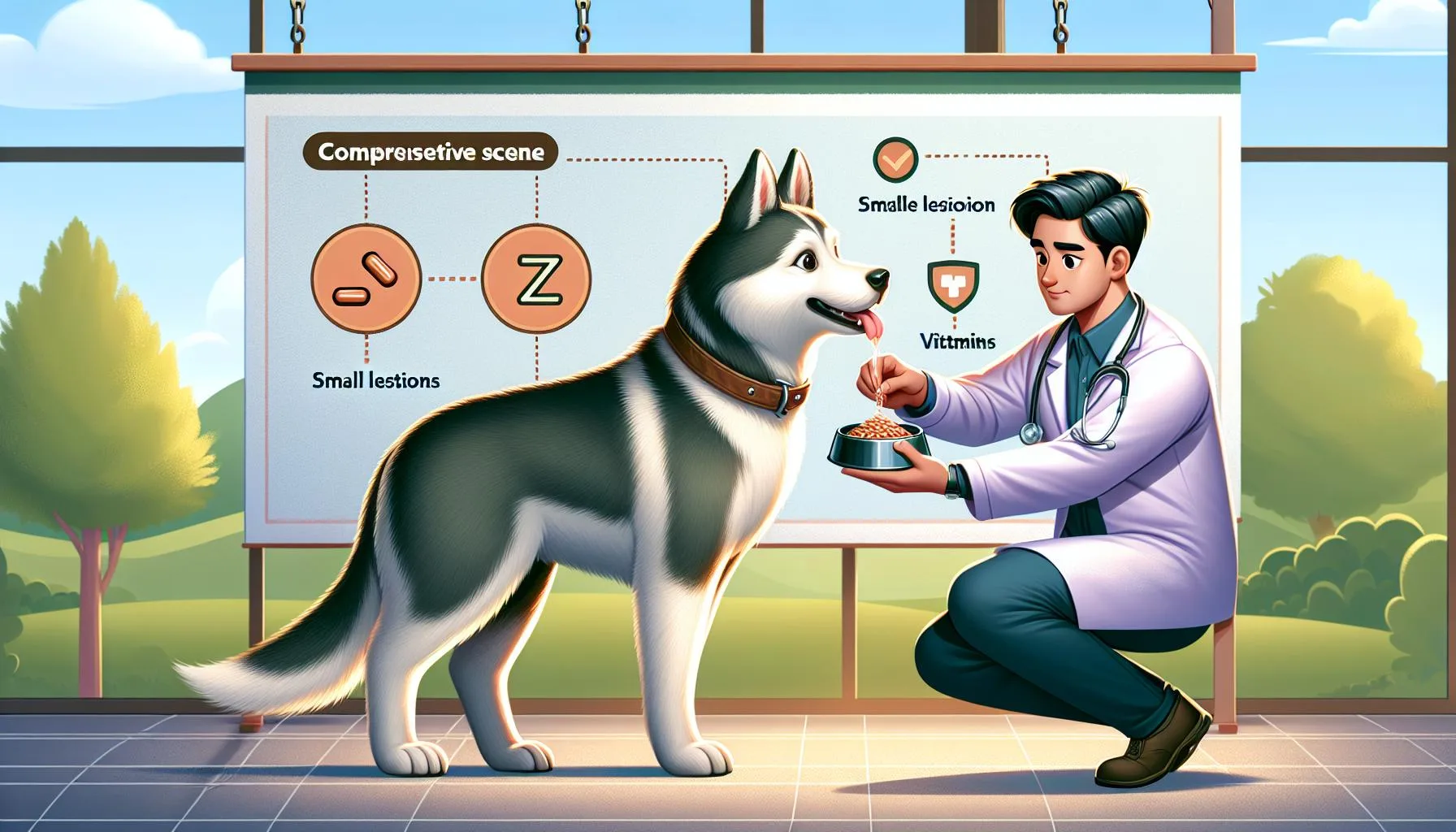
Identifying Zinc Deficiency Symptoms
Zinc deficiency in Huskies can manifest in various symptoms, serving as crucial indicators for attentive owners. Skin irritations are a commonly observed sign, characterized by persistent rashes, crusty lesions, and hair loss, particularly around the face, feet, and legs.
These skin issues may be accompanied by persistent itching and discomfort, prompting excessive licking or biting of the affected areas. In addition to skin problems, zinc deficiency can compromise a Husky’s immune system, leading to a higher susceptibility to infections and slow wound healing.
Owners should also be vigilant for symptoms like recurrent infections, prolonged recovery from minor injuries, and overall reduced immunity. Recognizing these early signs of zinc deficiency is imperative for proactive intervention and ensuring the well-being of Huskies.
Husky zinc deficiency in dogs
It’s essential for owners to consult a veterinarian promptly upon observing these symptoms, as professional guidance is crucial in diagnosing and addressing Husky zinc deficiency in dogs.
For a comprehensive understanding of how to maintain optimal health and prevent nutritional deficiencies in your beloved pet, dive into our detailed guide. Explore our article on maintaining the health of your Husky Lab mix and ensure your dog's well-being.
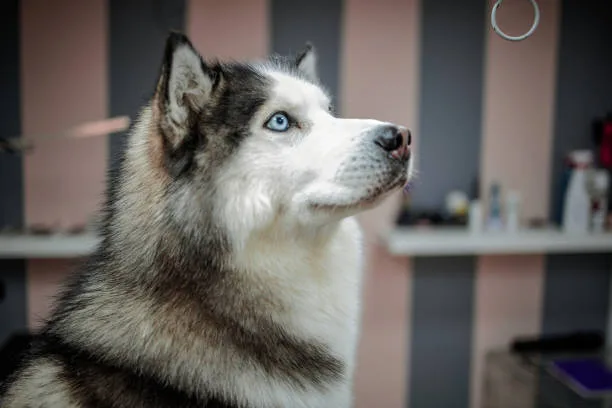
Why Huskies Are Prone to Zinc Deficiency
Huskies are particularly susceptible to zinc deficiency due to both genetic and dietary factors. Genetic predisposition plays a significant role in this vulnerability, as certain lines of Huskies may have a higher risk of malabsorption or impaired utilization of zinc.
This can result in a higher likelihood of developing zinc deficiency compared to other breeds. Additionally, the dietary requirements of Huskies differ from those of other dogs, and their unique nutritional needs can make it challenging to ensure they receive adequate zinc intake.
The combination of these genetic and dietary factors makes it crucial for Husky owners to be attentive to the potential for zinc deficiency in their pets.
Husky zinc deficiency in dogs
Furthermore, the digestive system of Huskies may not efficiently absorb zinc from their diet, further exacerbating the risk of deficiency.
This inefficiency in zinc absorption can be attributed to their genetic makeup, leading to a higher susceptibility to this specific mineral deficiency. Additionally, the abundance of certain dietary components in a Husky’s diet, such as calcium, can interfere with the absorption of zinc, contributing to the breed’s proneness to zinc deficiency.
To dive deeper into the unique physiology of Huskies and how it influences their health, explore our comprehensive article on the subject. Understand the significance of skull shape in these captivating canines and learn key insights for maintaining their well-being at Understanding Husky Skull Structure for Optimal Health.
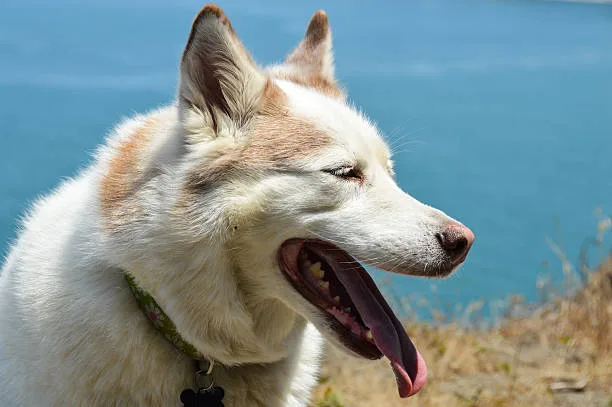
Diagnosing Zinc Deficiency in Huskies
Diagnosing zinc deficiency in Huskies is crucial to ensure their overall health and well-being. Veterinary professionals employ several methods to identify this condition.
They begin by observing the Husky for clinical signs such as persistent skin irritations, dull coat, and compromised immune system function. These indicators prompt further investigation, which may involve conducting blood tests to measure the levels of zinc in the dog’s system.
This comprehensive evaluation aids in confirming the presence of zinc deficiency, enabling targeted treatment and dietary adjustments to rectify the issue and improve the Husky’s health.
It is important to remain vigilant and responsive to signs that may indicate zinc deficiency in Huskies, as early detection can significantly impact their prognosis and quality of life.
Understanding the nuances of zinc deficiency is crucial for the well-being of your animals, yet there's even more to learn about our canine companions. For an in-depth exploration of one of the most captivating breeds, dive into our comprehensive guide on Siberian huskies. Uncover a trove of Siberian husky knowledge and insights here.
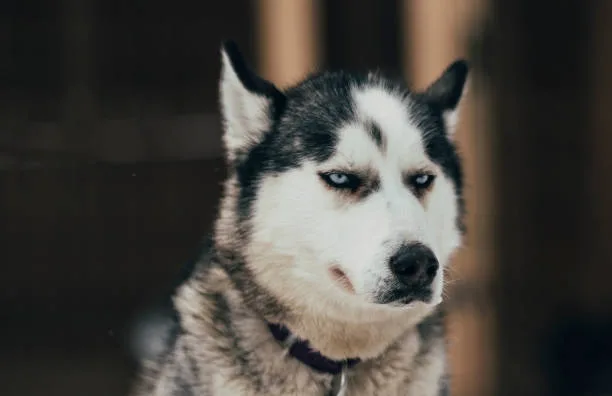
The Impact of Diet on Zinc Absorption
A Husky’s diet plays a pivotal role in zinc absorption, directly impacting the dog’s overall health. Certain dietary components can either facilitate or hinder the uptake of zinc, making it crucial for owners to be mindful of their pet’s nutritional intake.
Foods rich in protein, such as meat and fish, are excellent sources of zinc that promote its absorption in the body. Conversely, diets high in fiber or calcium can inhibit zinc uptake, potentially leading to Husky zinc deficiency in dogs.
Therefore, balancing the intake of these components is essential to ensure proper zinc absorption and prevent deficiencies.
It is important to be conscious of the dietary components that can either promote or inhibit zinc uptake in Huskies.
Foods rich in protein, such as meat and fish, are excellent sources of zinc that promote its absorption in the body. Conversely, diets high in fiber or calcium can inhibit zinc uptake, potentially leading to Husky zinc deficiency in dogs.
Therefore, balancing the intake of these components is essential to ensure proper zinc absorption and prevent deficiencies.
Understanding how diet influences zinc absorption in huskies is crucial for their overall well-being and optimal health. For comprehensive guidance on nurturing your unique pure black husky with striking blue eyes, delve into our detailed article on proper care tips for your cherished companion. Discover expert advice and tips for maintaining your husky's health and vigor.
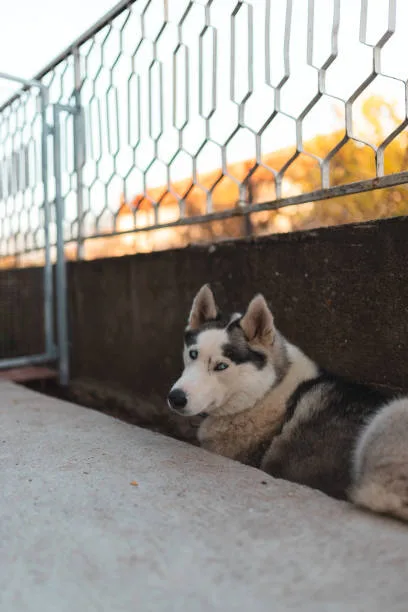
Recommended Zinc Sources for Huskies
Zinc is an essential mineral for Huskies, playing a crucial role in maintaining their overall health. To prevent Husky zinc deficiency in dogs, it’s important to include zinc-rich sources in their diet.
There are various foods and supplements that are ideal for ensuring an adequate intake of zinc for these dogs. Some recommended zinc sources for Huskies include:
- Foods: High-quality, balanced dog foods that contain meat, such as beef, lamb, and chicken are good sources of zinc.
- Supplements: Specifically formulated zinc supplements designed for dogs can be incorporated into their diet to ensure they receive sufficient amounts of this vital mineral.
- Other sources: Additionally, incorporating ingredients like fish and eggs can also contribute to the zinc intake for Huskies.
By incorporating these zinc-rich sources into the Husky’s diet, owners can effectively prevent zinc deficiency and support their pet’s overall well-being.
To ensure your Husky's coat shines just as much as their health, discover the secrets of grooming these unique dogs. Delve into our comprehensive guide, Grooming the Long-Haired Agouti Husky with Care and Affection, for expert tips on maintaining their distinctive beauty.
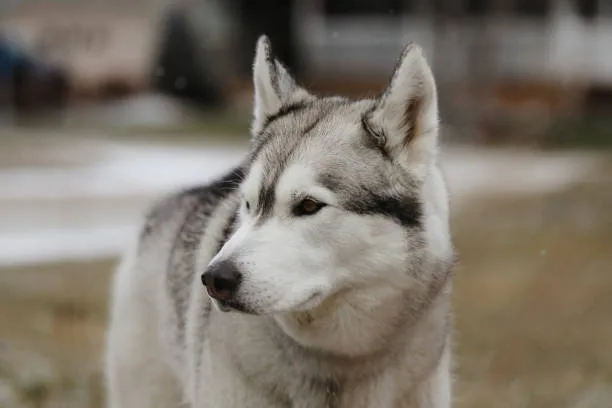
Integrating Zinc into Your Husky’s Diet
Integrating zinc into your Husky’s diet is crucial for preventing husky zinc deficiency in dogs, but it should be done carefully to maintain a nutrient balance. One way to achieve this is by choosing high-quality dog foods that have optimal zinc content.
Look for formulations that specifically mention zinc as an ingredient. Additionally, consider incorporating zinc-rich human foods suitable for dogs, such as lean meats like beef and chicken, as well as fish like salmon.
However, it’s important to consult with a veterinarian before making any significant changes to your Husky’s diet. They can provide personalized guidance based on your dog’s specific needs and ensure that the integration of zinc is safe and effective.
Keep in mind that excessive zinc intake can also lead to health issues, so it’s essential to follow recommended dosages and seek professional advice when necessary.
Considering high-quality dog foods with optimal zinc content.
Incorporating zinc-rich human foods suitable for dogs, such as lean meats and fish.
Consulting with a veterinarian before making significant changes to the diet.
Following recommended dosages and seeking professional advice when necessary.
To ensure your Husky's well-being extends beyond diet, grooming is equally essential. Explore our comprehensive guide on grooming frequency to help keep your four-legged friend both healthy and joyful by visiting "Maintaining Your Husky's Happiness with Regular Grooming."
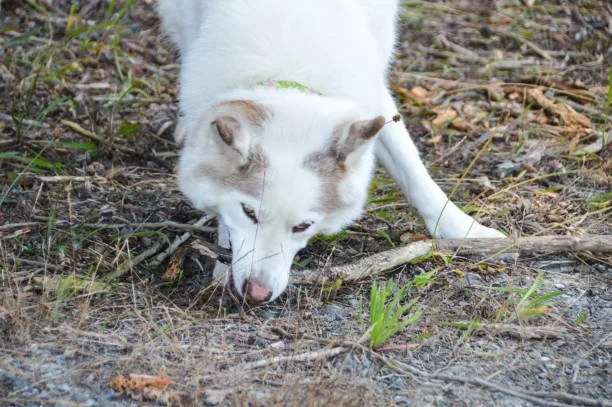
Zinc Supplementation: Dosages and Considerations
When addressing Husky zinc deficiency in dogs, it is crucial to consider the appropriate dosages and supplementation to prevent any potential toxicity. The recommended dosage for zinc supplementation in Huskies typically ranges from 1 to 2.5 mg of zinc per pound of dog food.
However, it is essential to consult a veterinarian to determine the exact dosage based on the specific needs of the individual Husky. Careful consideration should be given to the form of zinc being used, with zinc sulfate being a common and well-tolerated option for supplementation in Huskies.
Monitoring the zinc levels in the dog’s system is also vital to avoid overdosing and toxicity, emphasizing the importance of regular veterinary oversight when implementing zinc supplementation. Additionally, owners should be mindful of the potential interactions between zinc and other nutrients in the dog’s diet, ensuring a balanced approach to supplementation that aligns with the overall health and well-being of the Husky.
On Quora about: Husky zinc deficiency in dogs
Overall, the supplementation of zinc for Huskies requires careful dosing and considerations to prevent deficiencies without risking toxicity, underlining the significance of seeking professional veterinary guidance and maintaining a well-balanced approach to canine nutrition.
As you ensure your Husky's dietary needs are met with the right zinc supplementation, it's also essential to establish good habits early on. Uncover effective techniques for housebreaking your young companion by exploring our guide on training Husky puppies for proper potty etiquette.
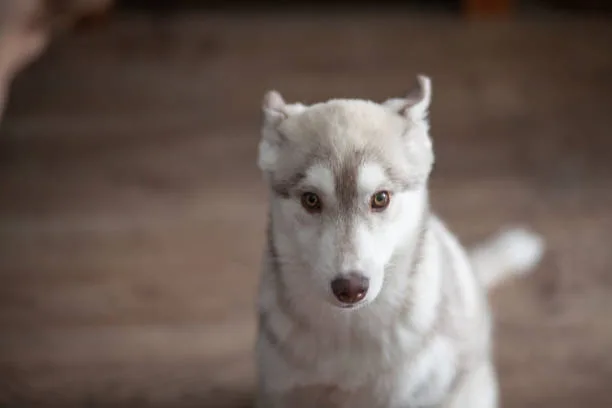
Monitoring Your Husky's Zinc Levels
Regular monitoring of zinc levels in Huskies is crucial, especially if they have been previously diagnosed with Husky zinc deficiency in dogs. This is essential to ensure that their zinc levels are within the optimal range, as ongoing deficiency can lead to serious health issues.
As part of the monitoring process, veterinarians typically conduct blood tests to accurately assess the zinc levels in the dog’s system. By keeping a close eye on these levels, owners and veterinarians can promptly detect any fluctuations and take necessary steps to address them, thus safeguarding the overall well-being of the Husky.
Reddit Husky zinc deficiency in dogs
It’s recommended that Husky owners work closely with their veterinarians to establish a monitoring schedule tailored to their dog’s specific needs. This proactive approach allows for the timely adjustment of dietary and supplementation plans to maintain the Husky’s zinc levels at an optimal and healthy level.
To ensure your Siberian Husky thrives, maintaining optimal zinc levels is essential, particularly for those with a history of deficiency. Unveil tailored nutritional strategies by exploring our comprehensive guide, "Discover the Perfect Diet for Your Siberian Husky Today!"
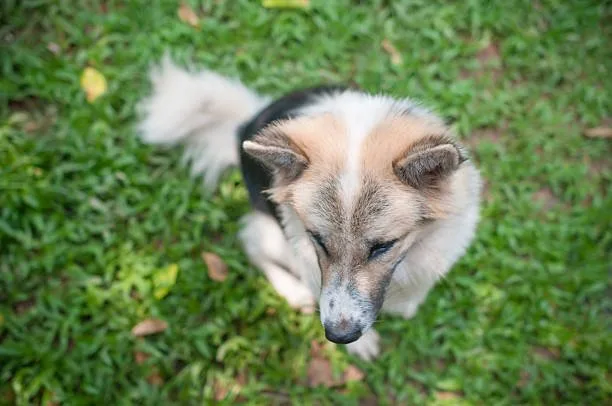
Long-Term Management of Zinc Deficiency
For the long-term management of Husky zinc deficiency in dogs, it is essential to prioritize regular veterinary check-ups and dietary adjustments. These regular check-ups provide an opportunity for the vet to monitor your Husky’s zinc levels and overall health.
Additionally, the vet can recommend any necessary dietary adjustments based on your dog’s specific needs. Dietary adjustments may include incorporating zinc-rich foods or supplements into your Husky’s diet to address any ongoing deficiency.
Consistent collaboration with your vet ensures that your Husky’s zinc levels are maintained within a healthy range and that any potential issues are addressed proactively, promoting the overall well-being of your beloved pet.
Ultimately, the combination of vigilant veterinary oversight and tailored dietary adjustments contributes significantly to the effective, long-term management of zinc deficiency in Huskies, safeguarding their health and vitality.
To delve deeper into canine care essentials, explore our comprehensive guide on selecting the perfect harness for your pint-sized pooch. Discover the fusion of fit and fashion in our featured article, "Chihuahua Dog Harness: Fit & Stylish."

Husky Health and Nutrition: The Significance of a Balanced Diet
Maintaining the health of a Siberian Husky is crucial, and proper nutrition plays a key role in achieving this goal. A balanced diet tailored to meet the specific dietary requirements of Huskies is essential.
This includes ensuring an adequate intake of essential minerals such as zinc, which is vital for preventing Husky zinc deficiency in dogs and supporting their immune function. Including zinc-rich foods in their diet is essential to address potential deficiencies and promote overall well-being.
A balanced diet not only contributes to their physical health but also aids in maintaining a healthy coat, strong immunity, and optimal energy levels.
It’s important for Husky owners to be mindful of their dog’s individual nutritional needs, and to consult with veterinarians or professional nutritionists when making dietary decisions.
Monitoring the Husky’s diet to ensure it aligns with their unique nutritional requirements is key in preventing potential health issues associated with inadequate mineral intake, such as zinc deficiency. Additionally, regular check-ups and discussions with veterinary professionals can provide further guidance in maintaining a balanced diet to support the overall health and well-being of these magnificent dogs.
To delve deeper into tailoring your Siberian Husky's diet for their maximum well-being, explore our comprehensive guide. Discover strategies to cater to your furry companion's unique nutritional requirements by reading Ensuring Optimal Care for Your Siberian Husky and Chihuahua Mix.
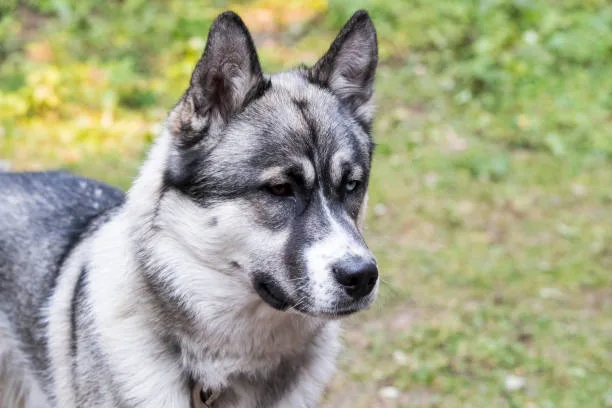
Recognizing and Treating Zinc Responsive Dermatosis in Huskies
Zinc responsive dermatosis can manifest as one of the common skin problems in Huskies. The identification process involves a thorough assessment of skin irritations, hair loss, and other dermatological symptoms commonly associated with zinc deficiency in dogs.
Veterinary care plays a pivotal role in diagnosing this condition, often through a combination of physical examination and detailed medical history review. Upon diagnosis, treatment typically involves formulating a tailored plan to address the underlying zinc-deficiency, which may include the prescription of zinc supplements specifically suited for dogs.
These supplements are carefully administered to ensure that the Husky’s zinc levels are replenished effectively, promoting healthy skin and coat while addressing the root cause of the dermatosis.
Ultimately, recognizing and treating zinc responsive dermatosis in Huskies necessitates a collaborative approach between pet owners and veterinary professionals. By remaining vigilant for potential symptoms and seeking timely veterinary care, pet owners can play a vital role in effectively managing and alleviating the impact of zinc deficiency in their beloved Husky companions.

The Pivotal Role of Essential Minerals in Canine Health
Essential minerals play a crucial role in maintaining optimal canine health. In the case of Husky zinc deficiency in dogs, malabsorption issues can greatly affect the absorption of vital nutrients like zinc.
This can have a significant impact on the overall well-being of the Husky, as zinc is essential for maintaining coat and skin conditions. Including minerals such as zinc sulfate in a Husky’s diet is of paramount importance to address these concerns and ensure the dog’s overall health is properly supported.
This proactive approach can help prevent the onset of zinc deficiency, promoting the Husky’s general well-being and quality of life.
It is important to understand the impact of malabsorption on nutrient absorption, especially with regards to essential minerals like zinc, in order to prioritize the Husky’s health. Incorporating minerals such as zinc sulfate into the Husky’s diet is crucial to support coat and skin conditions, ultimately contributing to the dog’s overall health.
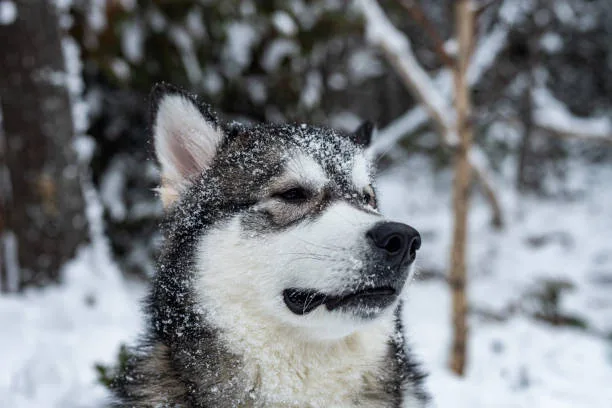
Dietary Management Methods for Husky Well-Being
To ensure the well-being of Huskies, it’s crucial to tailor dietary management strategies specifically for this northern breed. This involves analyzing their unique nutrition requirements and implementing the proper use of dietary supplements to prevent malabsorption and Husky zinc deficiency in dogs.
By addressing these specific dietary needs, owners can better support the overall health and vitality of their Huskies.
Additionally, it’s important to consider the role of essential minerals like zinc in a Husky’s diet, as they play a pivotal role in maintaining coat and skin conditions as well as overall health.
Adequate incorporation of zinc sulfate and other essential minerals is imperative to prevent deficiencies and support the immune function of these majestic dogs. By customizing their dietary plan with a focus on targeted nutrient intake, owners can help their Huskies thrive and lead healthy, active lives.
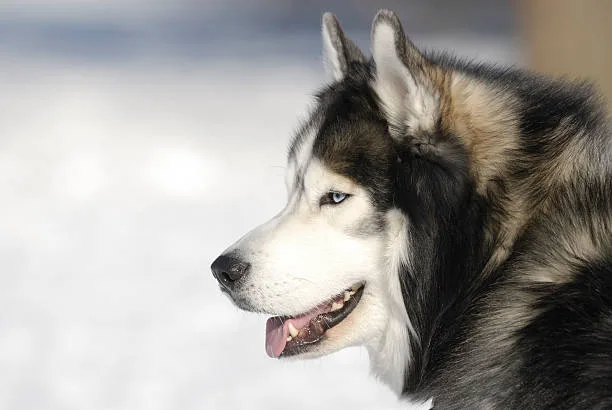
Zinc Supplementation for Huskies: Approaches and Veterinary Insights
Zinc supplementation for Huskies is essential to address the specific needs of the breed and to prevent the occurrence of Husky zinc deficiency in dogs. When considering approaches to supplementation, it’s crucial to focus on the careful administration of zinc, including the use of zinc sulfate, which is a common and effective form of zinc supplementation for dogs.
Dosage considerations play a significant role in ensuring that Huskies receive the appropriate amount of zinc without the risk of toxicity. Veterinary oversight is paramount in this process as they can provide valuable insights into the correct dosage levels based on the individual Husky’s needs and can monitor zinc levels through regular blood tests to prevent any imbalances or deficiencies.
It’s important for owners to recognize that balanced nutrient absorption is a key outcome of effective zinc supplementation, and this can be accomplished through the expertise of veterinarians who specialize in Husky health and nutrition.
Zinc supplementation for Huskies is essential to address the specific needs of the breed and to prevent the occurrence of Husky zinc deficiency in dogs. When considering approaches to supplementation, it’s crucial to focus on the careful administration of zinc, including the use of zinc sulfate, which is a common and effective form of zinc supplementation for dogs.
Dosage considerations play a significant role in ensuring that Huskies receive the appropriate amount of zinc without the risk of toxicity.
Veterinary oversight is paramount in this process as they can provide valuable insights into the correct dosage levels based on the individual Husky’s needs and can monitor zinc levels through regular blood tests to prevent any imbalances or deficiencies.
It’s important for owners to recognize that balanced nutrient absorption is a key outcome of effective zinc supplementation, and this can be accomplished through the expertise of veterinarians who specialize in Husky health and nutrition.
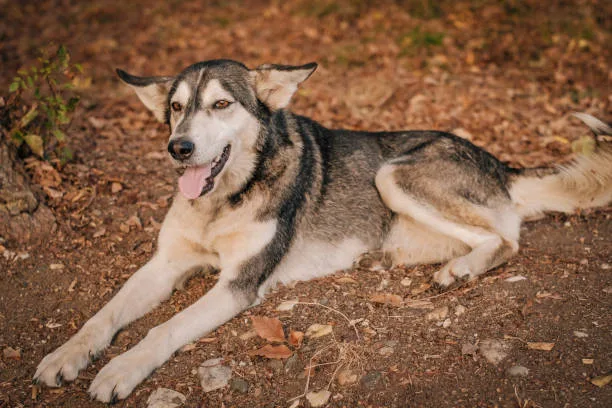
Conclusion: Ensuring Your Husky's Well-Being
To ensure your Husky’s well-being, it’s crucial to prioritize their nutritional needs and prevent Husky zinc deficiency in dogs. A balanced diet is the cornerstone of maintaining your Husky’s health, so it’s essential to provide a diet rich in zinc and other essential nutrients.
As an owner, you play a vital role in monitoring your dog’s diet, ensuring that it meets their specific dietary requirements, including an adequate intake of zinc. By understanding the signs of zinc deficiency and the impact of a balanced diet, you can proactively safeguard your Husky’s health and well-being.
Keep in mind that regular veterinary check-ups are valuable for assessing your Husky’s overall health and addressing any potential nutritional imbalances or deficiencies. Ultimately, your attentive care and focus on proper nutrition will contribute significantly to your Husky’s long-term health and happiness.
Ensuring a balanced diet tailored to your Husky’s specific nutritional needs is crucial for preventing zinc deficiency and maintaining their overall well-being.
As a responsible owner, your active involvement in monitoring and providing for your Husky’s dietary requirements is essential for their long-term health.

Leave a Reply